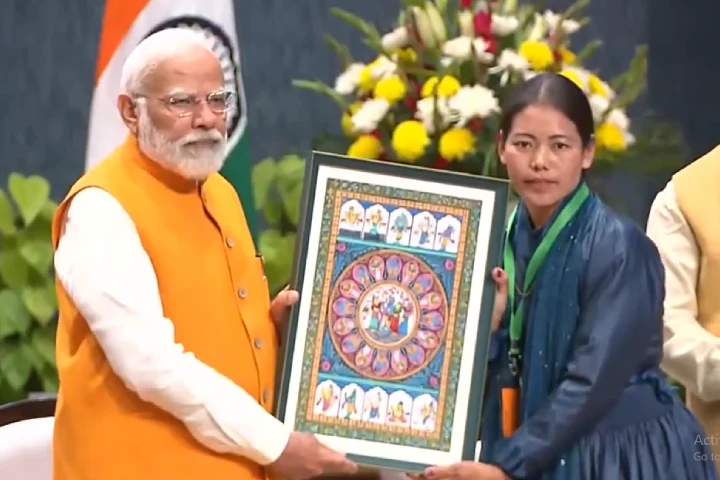Prime Minister Narendra Modi on Monday participated in the Sashakt Nari-Viksit Bharat programme in the national capital.
Namo Drone Didis from 10 different locations across the country participated in the drone demonstration simultaneously.
During the programme, Prime Minister Modi also handed over drones to 1,000 Namo Drone Didis.
The Namo Drone Didi and Lakhpati Didi initiatives are integral to his vision of fostering economic empowerment and financial autonomy among women, especially in rural areas.
15,000 self-help groups are being connected with the ‘Namo Drone Didi’ program. Drones will be provided to these groups, and government aims to make women in the villages the rightful recipients of everyone’s respect through ‘Namo Drone Didi’. Women will receive training to become drone pilots. Through the self-help groups’ campaign to make these women self-reliant, the drone program will also empower them. This will provide additional income opportunities for several women.
Prime Minister Modi also felicitated Lakhpati Didis, who have achieved success with the support of the Deendayal Antyodaya Yojana-National Rural Livelihoods Mission and are supporting and motivating members of other self-help groups.
While presenting the Interim Budget 2024-25 in Parliament, Union Minister for Finance Nirmala Sitharaman had announced that it has been decided to enhance the target for Lakhpati Didi from 2 crore to 3 crore.
The Union Minister had said that eighty-three lakh SHGs with nine crore women are transforming rural socio-economic landscape with empowerment and self-reliance. Their success has assisted nearly one crore women to become Lakhpati Didi already.
Meanwhile, PM Modi also disbursed around Rs 8,000 crore in bank loans to Self Help Groups (SHGs) at subsidised interest rates through Bank Linkage Camps set up by banks in each district. He also disbursed about Rs 2,000 crore in Capitalization Support Funds to SHGs.
The NaMo Drone Didi Initiative aims to empower rural women by training them to become drone pilots for agricultural purposes.
The initiative aims to equip 15,000 women-led Self-Help Groups (SHGs) with agricultural drones to assist in tasks such as crop monitoring, spraying fertilisers and sowing seeds.




















